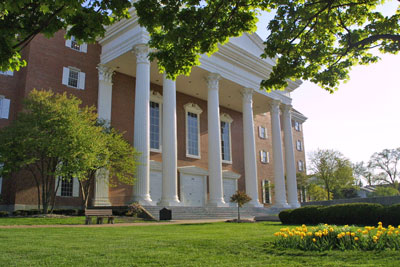
Is it a “farce” to accredit religious colleges?
Point: Peter Conn, “The Great Accreditation Farce,” Chronicle of Higher Education Commentary, June 30, 2014.
“By awarding accreditation to religious colleges, the process confers legitimacy on institutions that systematically undermine the most fundamental purposes of higher education.
“Skeptical and unfettered inquiry is the hallmark of American teaching and research. However, such inquiry cannot flourish–in many cases, cannot even survive–inside institutions that erect religious tests for truth. The contradiction is obvious.”
Counterpoint: Alan Jacobs, “An academic farce,” TextPatterns, blog at The New Atlantis, July 3, 2014.
“Conn is appalled – appalled – that religious colleges can receive accreditation. Why does this appall him? Well, because they have communal statements of faith, and this proves that in them ‘the primacy of reason has been abandoned.’ The idea that religious faith and reason are incompatible can only be put forth by someone utterly ignorant of the centuries of philosophical debate on this subject, which continues to this day . . .
“Conn is, if possible, even farther off-base when he writes of ‘the manifest disconnect between the bedrock principle of academic freedom and the governing regulations that corrupt academic freedom at Wheaton.’ I taught at Wheaton for twenty-nine years, and when people asked me why I stayed there for so long my answer was always the same: I was there for the academic freedom. My interests were in the intersection of theology, religious practice, and literature – a very rich field, but one that in most secular universities I would have been strongly discouraged from pursuing except in a corrosively skeptical way. Certainly in such an environment I would never have dared to write a book on the theology of reading – and yet what I learned in writing that book has been foundational for the rest of my career.”
